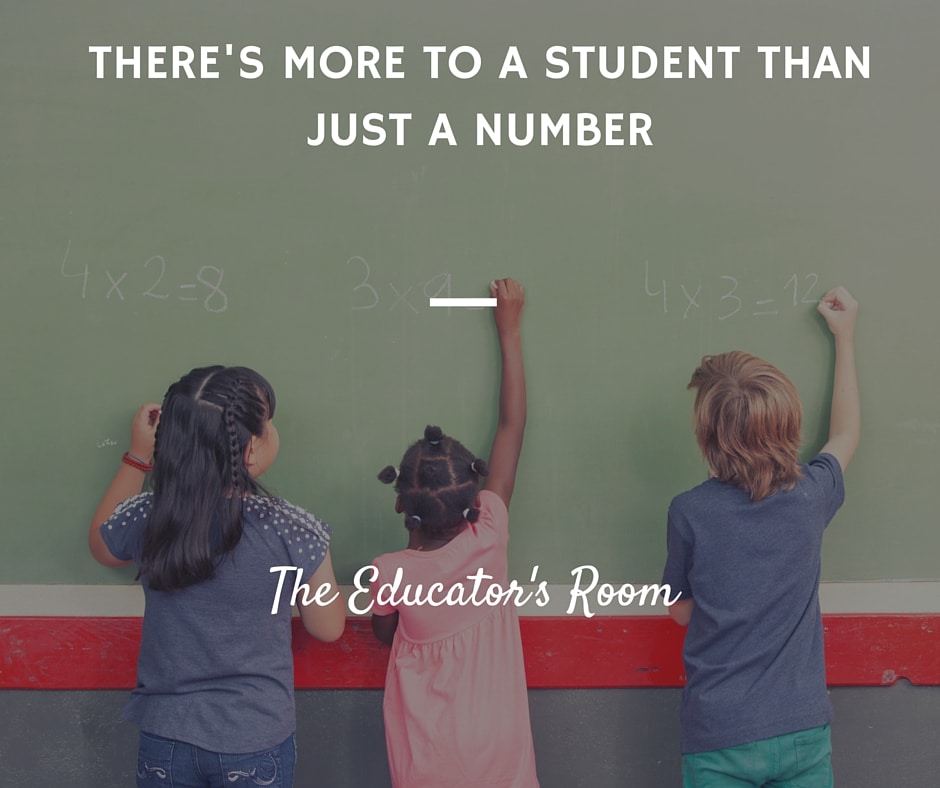I was so angry. How could anyone just give up on a child because of a number!
Let me back up. Way back to this past summer. Bear with me.
I tutor during the summer. I had a family contact me about tutoring their foster children, a soon-to-be first grader and a fifth grader. They had been in a horrible family situation; abuse, neglect, so on and so forth. I scheduled an initial assessment date and looked forward to meeting with the family and kids.
Upon assessing them both, the first grader was at a four-year-old level and the fifth grader was at a high first grade level. Ugh.
Gathering the background history I found out that school attendance was sketchy at best, biological mom was low functioning, three other children had also been removed from the home and the overall environment hadn’t been stable for a decade.
I made a plan and started working with them the next week, twice a week. School was scheduled to begin in two months.
Fast forward to school beginning in August and a psychological evaluation was scheduled for September at the school, which would include not just basic levels, but a series of psychoanalytic batteries as well. A WISC score was obtained and that is where it hit the fan.
The foster parents brought a copy of all of the evals for me to look through, along with comments by the psychometrist. As I perused the scores I noticed that IQ levels were lower than a normal range; 74 and 62, respectively. Although noted, I continued going through the results, setting goals and jotting down ideas that I thought could help with deficits in skills. We implemented ideas and continued tutoring twice a week.
Then here comes the beloved IEP meeting for the fifth grader. Mind you, it’s December by now. The foster mom asked me to go over the IEP and make any notes that I thought would be helpful before she met with the team. I knew this student wasn’t being required to do much in school. She didn’t get to participate in science or social studies, reading was thrown by the wayside. Vocabulary and language arts skills were not being taught at her level. Although she was in an inclusive class a majority of the day, the times she was pulled to the resource classroom did not have structure and skills weren’t being built on. The only outside work she had to do was what I gave her at tutoring. When I looked through the IEP though, my heart fell. There were not any challenging objectives. The school wanted to focus on basic math facts. No reading above a 1.4 level. Nothing was required for science and social studies.
Considering we had been working on reading out of 2.7 leveled material and were way past basic math facts moving into multiplication and regrouping, I was furious. This student was excited about learning. This student was fascinated with her ability to read and write stories. She asked me for more work to work on at home, and DID IT! I made my notes and handed the IEP to the mom, telling her to take in some of the work we had done in tutoring as samples.
The next week the mom called me in tears. The team shot down all of the suggestions that I had made and shook their heads, telling the foster mom that there ‘was no hope for a child whose IQ was that low’ and that they ‘didn’t have the capabilities of focusing on individual skills that were suggested’. When the foster mom questioned why they felt that way the school psychologist just shook her head and said that the student was a ‘lost cause’.
Enter anger.
I absolutely hate the way that “test scores” (generalized) are used inappropriately. Instead of utilizing them as a measurement tool, schools are viewing them as a ‘diagnostic’ tool, gauging potential success and failure off of a number.
I’m not kidding anyone. Will this student face a challenge on schoolwork? Absolutely. Will some material take a heck of a lot longer for her to comprehend? Of course. Does a number predict her potential. NO WAY.
Scores do not assess drive, ambition, motivation or self-worth. They do not predict interests, creativity or potential. If we could control everyone’s environment, accessibility to material, home circumstances and confidence levels, we would be looking at a different story. But since we are all unique individuals and kids come from different family situations, different environmental exposures and different experiences, we cannot base important teachings on evaluation scores!
Numbers are numbers, folks. Don’t let numbers dictate what your students can and can’t do.
More importantly, don’t let those numbers dictate how you teach – or how you don’t teach.




